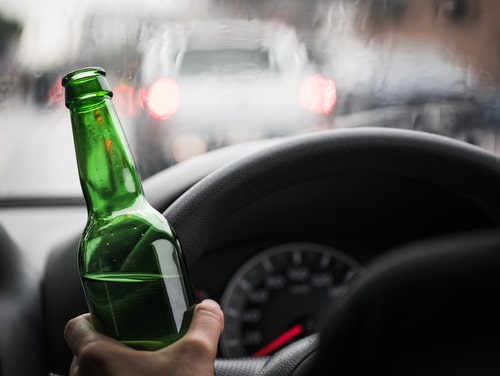The Difference Between OWI and DUI
 Getting behind the wheel of a motor vehicle while intoxicated is very likely to affect your driving abilities. Not to mention if caught, you could be looking at charges that could see your license suspended as well as potential jail time. The charges received will usually fall under either driving under the influence (DUI) or operating while intoxicated (OWI).
Getting behind the wheel of a motor vehicle while intoxicated is very likely to affect your driving abilities. Not to mention if caught, you could be looking at charges that could see your license suspended as well as potential jail time. The charges received will usually fall under either driving under the influence (DUI) or operating while intoxicated (OWI).
Wisconsin laws carry serious penalties and should be taken just as seriously. To help fight any charges being lobbied against you, it is recommended you consult a lawyer experienced in those charges willing to go to war to defend your rights.
OWI vs DUI
The primary difference between these normally interchangeable terms is that an OWI can be received for sitting in the driver’s seat of a non-moving vehicle. This contrasts with a DUI in that a person must actually have the vehicle in motion to be charged.
The OWI statute outlines that anyone in a position where they can control any part of an automobile’s movement can face charges. This charge is not relegated to just cars, trucks, and vans but also boats, motorbikes, or any other motorized vehicles and devices.
Another key difference is the minimum blood alcohol concentration (BAC) level a driver has in their system when pulled over or arrested. A DUI requires a .08 percent, but a person can still be charged for a lower BAC if they are under the age of 21 years old thanks to Wisconsin’s zero tolerance laws. An OWI has a minimum BAC of .10 percent.
What Should I Expect If Arrested for an OWI?
An officer is likely to give you a ticket depending on your current situation. The officer may request a sobriety test accompanied by a blood, breath, or urine test for your BAC. Wisconsin has an Implied Consent law for anyone willing to get behind the wheel of a motor vehicle. Refusal of a sobriety test or subsequent chemical testing may require the officer to retrieve a warrant for a blood draw. You will also receive a “Notice of Intent to Revoke” right on the spot.
If you know that you are 100 percent clean and will pass a chemical test, it is in your best interest to submit when asked. Accepting to take the test will often result in lesser penalties, such as a six to nine-month license revocation rather than a full year’s suspension. Persons found to be intoxicated with either alcohol or an illegal substance will receive a Notice of Intent to Suspend either directly from the officer or by mail following the results of a blood test.
Contact a Waukesha County, WI Criminal Defense Attorney
An OWI or DUI can be a tough charge to face. Do not give the court any additional reason or evidence to find you guilty. Instead, consult an experienced Waukesha, WI OWI defense attorney right away. The office of Bucher, Wolff & Sonderhouse, LLP is ready to take the fight to the court on your behalf. Contact our firm at 262-232-6699 for a free consultation to discuss a defense strategy.









 262-232-6699
262-232-6699





